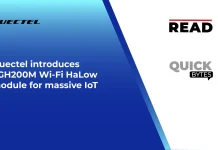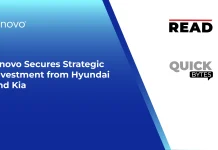 Hi Sergio, could you tell us about your journey in the AdTech industry?
Hi Sergio, could you tell us about your journey in the AdTech industry?
I’ve been working in this space for about a decade. During my college years, I collaborated with one of the biggest social networks back in Europe, before ‘social network’ was even a term. We would offer a platform to create free forums and blogs. In turn, the users would have to live with advertising populating their spaces.
Along with developing programming skills, this opportunity gave me a good understanding of ad tech and monetization dynamics for publishers. This really captured my interest as I could apply both programming and economics to very relevant, real-life problem statements. Fast forward three years, I landed at InMobi and fell in love with its culture and growth opportunities. That was 2015 and since then I have been helping build out the InMobi Exchange.
Read More: Read Magazine Interview With Umberto Milletti, Head Of Engineering, Demandbase
What challenges did the COVID-19 pandemic pose for you and your team?
From a business perspective, despite an immediate and short-term softness due to uncertainty that so many felt, COVID-19 turned out to be a good opportunity for the ecosystem. Users consumed more and more in-app and web content on their mobile devices, generating higher volumes that drove recent stats that show people spend as much as 4.5 hours on their phones each day.
From a people standpoint, the pandemic caused all of us to readapt and think through how we can work most effectively when we’re remote and not in the same office each day. As a global company that works across many time zones, we were used to collaborating with our colleagues across the globe at different hours and through video conferencing, but this was an extreme version of that.
Fortunately, human beings can adapt to almost all circumstances, especially while backed up by strong leadership and support, as we have at InMobi. Our efficiency did not collapse and, rather, collectively we were able to deliver record growth for the company.
What sets InMobi apart from the competition?
Our 15-year legacy as a mobile pioneer and continuous pursuit of innovation. InMobi has been focused on mobile monetization since the launch of the first smartphone in 2007. When it comes to adapting to new formats, regulations, or industry specifications, InMobi has historically been front and center. We have teams dedicated to optimizing the status quo and ad hoc teams to study and shape the new trends for both advertisers and publishers.
We’ve been a leader in identity and addressability and have introduced revolutionary solutions, including UnifID and AmplifID. This is not limited to an area, but it spans across multiple product lines. Innovation is key for a tech company, and I do believe this to be one of InMobi’s most important core values and advantages.
How, according to you, has the Advertising landscape evolved and will evolve in the coming years?
Personalization, measurability, and omnichannel addressability are the three major areas of evolution for advertising. When I use any given app or consume web content, I am happy to be recommended a product or service that is relevant to me, and that I could actually use. The old definition of a television commercial today seems like an oxymoron compared to current advertising capabilities: a very broad audience and targeting as well as close to impossible measurability of your ROI.
When I was at university, I used to fly very often from my hometown to the city where I was studying. Every time, once I got off the airplane, I would come across a specific billboard of a famous Italian brand. I always wondered how much that billboard cost the company and how much the advertising would yield back to them.
While the first point was easily computable, measuring ROI was nearly impossible. The advertising we know today allows users to consume useful content and advertisers to accurately measure its efficacy. In my opinion, a win-win for everybody and a massive step forward for the industry. I am a big fan of relevant advertising in compliance with all privacy boundaries.
The scope of any advertising platform should be to provide value to both the advertiser and the end-user while respecting his/her privacy. To successfully reach my intended target audience, the advertiser doesn’t need to know your first name, last name, or any PII data. At the end of the day, we want to understand what you care about and tell advertisers they can help fulfill that need in a respectful way.
How do you envisage AdTech evolving, in the years to come?
The undeniable trend is ‘moving towards user privacy.’ InMobi is a big proponent of this approach while being done in a collaborative and meaningful way. Along with IAB and other industry bodies, we have been weathering the ‘new-regulationstorms.’.
I would say that in the vast majority of cases, tight collaboration across the industry has allowed the advertising ecosystem to comply with such regulations while (a) honoring the user’s preferences and (b) not disrupting KPIs for advertisers. Google’s Privacy Sandbox is a good example of collaborative innovation currently developing in the ecosystem.
We saw and learned the hard way how powerful a platform can be in enforcing the rules of the game, even beyond what the regulators prescribe. I think Google’s approach is a good one, based on ecosystem conversations rather than unilateral enforcement with a loose understanding of both regulation and innovation.
What are your views on Programmatic Advertising?
Programmatic is the best way forward to achieve transparency and fair competition outside the walled gardens. At the end of the day, its intrinsic auction mechanics derive from well-established economic models. I believe programmatic advertising has been one of the most important trading models of the past years in order to democratize supply.
How, according to you, has Marketing Automation impacted the traditional Sales and Marketing funnels?
In so many ways; as I mentioned above, the most important ones are regarding measurability and targeting. On top of that, marketers can now cluster data onto their CMPs and maintain comprehensive user graphs about their customers. Marketing can now be deployed to customers ‘on the go’ as opposed to the legacy static and umbrella methodology.
Could you name one other Product Head that you would like to see featured here?
I would say Ivo Karadjov from The Trade Desk. We collaborated a lot in the past, and I would be keen to read about his perspectives.
As a MarTech Leader, what is the one piece of advice you would give to those who aspire to make a career in marketing?
It may seem simple, but: be curious. Digital marketing is definitely equal to part art and part science, so don’t skip those statistics classes at school. If you’re just starting out, spend time studying and understanding the ecosystem. It’s a fascinating, fragmented, and evolving industry and the sooner you start studying it, the higher your chances of making an impact.






